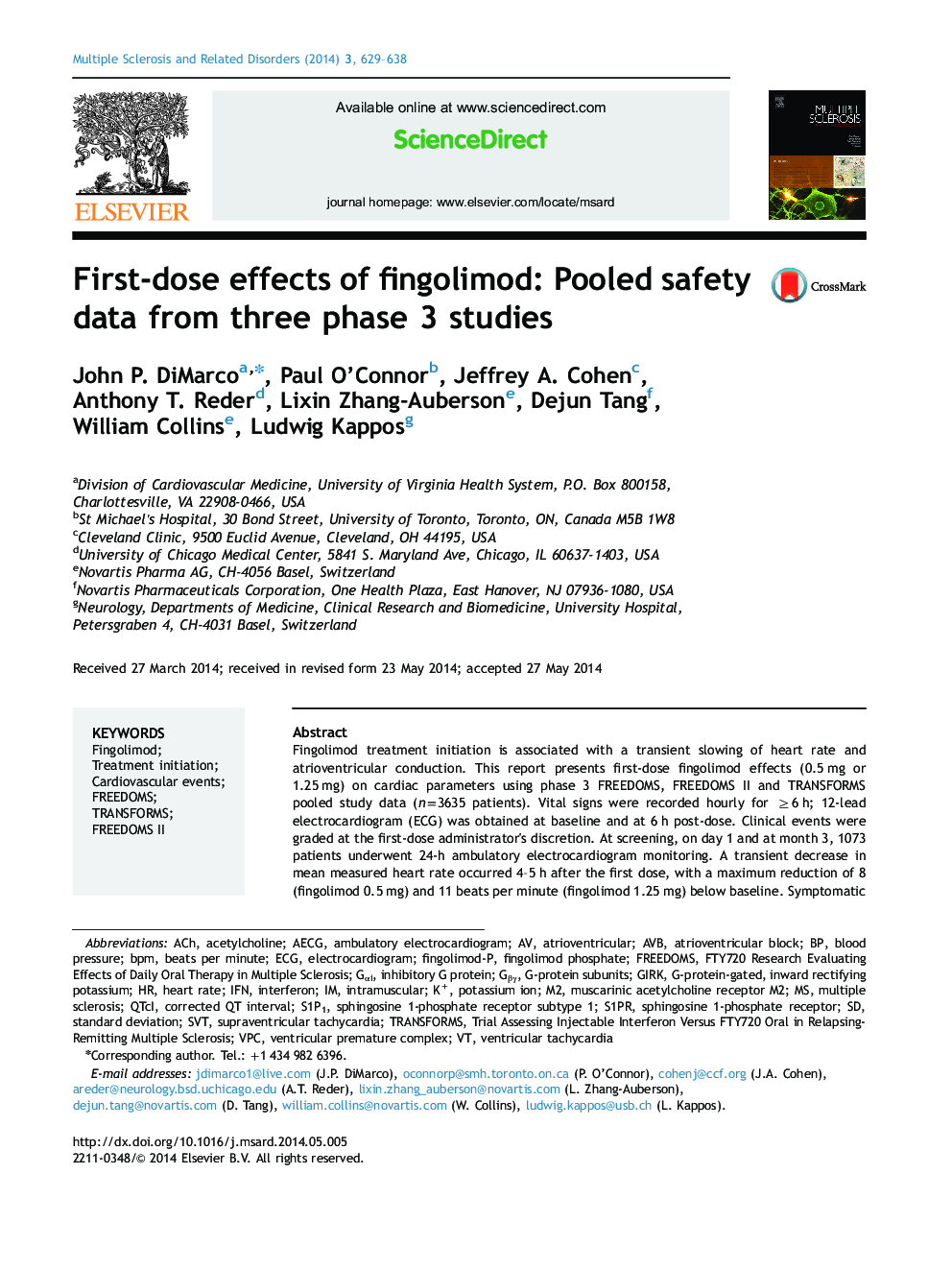| Article ID | Journal | Published Year | Pages | File Type |
|---|---|---|---|---|
| 2823825 | Multiple Sclerosis and Related Disorders | 2014 | 10 Pages |
•Fingolimod first-dose effects analyzed from a pool of 3635 phase 3 study patients.•Treatment was associated with transient, mostly asymptomatic, heart rate reductions.•Symptomatic bradycardia and 2nd degree AV blocks were infrequent.•First-dose effects mostly occurred during the first 6 h following treatment.•The clinical impact was limited and specific therapy was generally not required.
Fingolimod treatment initiation is associated with a transient slowing of heart rate and atrioventricular conduction. This report presents first-dose fingolimod effects (0.5 mg or 1.25 mg) on cardiac parameters using phase 3 FREEDOMS, FREEDOMS II and TRANSFORMS pooled study data (n=3635 patients). Vital signs were recorded hourly for ≥6 h; 12-lead electrocardiogram (ECG) was obtained at baseline and at 6 h post-dose. Clinical events were graded at the first-dose administrator׳s discretion. At screening, on day 1 and at month 3, 1073 patients underwent 24-h ambulatory electrocardiogram monitoring. A transient decrease in mean measured heart rate occurred 4–5 h after the first dose, with a maximum reduction of 8 (fingolimod 0.5 mg) and 11 beats per minute (fingolimod 1.25 mg) below baseline. Symptomatic bradycardia at treatment initiation was reported in 0.6% (fingolimod 0.5 mg) and 2.1% (fingolimod 1.25 mg) of patients; events were typically mild or moderate in severity, and most resolved spontaneously. Atrioventricular (AV) conduction delays were observed in a few patients (Wenckebach (Mobitz type I) second-degree AV block, fingolimod 0.5 mg, 0.2%; 1.25 mg, 1%: 2:1 AV block fingolimod, 0.5 mg, 0%; 1.25 mg, 0.2% on ECG 6-h post-dose). These were usually well tolerated and first occurred within 6 h of dosing. Consistent with its effects on atrial myocytes, fingolimod treatment initiation induced a transient slowing of heart rate and AV conduction. However, symptomatic bradycardia and second-degree AV block were uncommon and did not require intervention.
